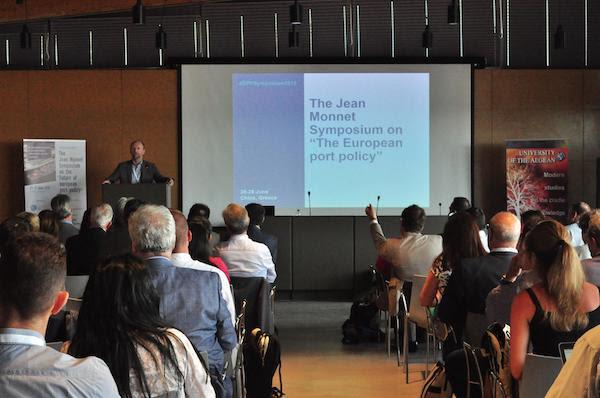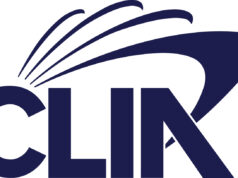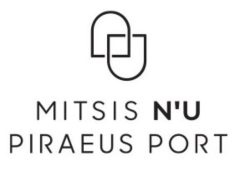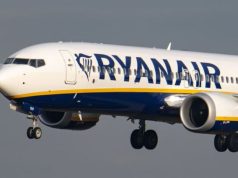A fruitful and productive Jean Monnet Symposium on “The future of the Future of the European Port Policy” took place on the island of Chios during the 28th and 29th of June 2018.
The Symposium was scientifically coordinated by PorteEconomics.eu and organised by the Department of Shipping, Trade and Transport of University of the Aegean – and PortEconomics will soon make available all Conference presentations.
Inaugurated by the Mayor of Chios, the Symposium was attended by more than 110 participants, representing port authorities, port related associations, port users, European Institutions as well as the academic community.
Dr Christos Lambridis, Secretary General of Ports, Port Policy and Shipping Investments of the Greek Ministry of Shipping and Insular Policy highlighted the initiatives undertaken by the Greek State aiming at enabling the European port policy framework to increase the competitiveness of the Greek ports. During his intervention Dr. Lambridis also mentioned that the port privatization model followed in the case of the two major Greek ports (i.e. selling of the port authorities of the ports of Piraeus and Thessaloniki) will not be applied for the rest of the 10 Greek ports operating as Société Anonymes, as the concession of port activities will be the preferable liberalization model from now.
During the first day of the Symposium, senior officials from the European Port Industry and port related associations and institutional bodies, expressed their views on the challenges and the prospects of the port industry.
Day 1
During the first day of the Symposium, senior officials from the European Port Industry and port related associations and institutional bodies, expressed their views on the challenges and the prospects of the port industry.
During a session chaired by PortEconomics co-director Theo Notteboom, the Deputy Managing Director of DG MOVE (European Commission) Mr. Matthew Baldwin stressed the importance of clarity and transparency during the implementation of the EU port services regulation, as well as on the role of ports as agents of economic change.
Mr. Baldwin emphasised the importance of decarbonising transport, as well as the need of Europe to go further in defining envirnomental standards in transportation, concluding on the importance of EU initiatives, such as the “European Maritime Single Window”, in facilitating the introduction of digitalization in the European port industries.
The new role of the Port Authorities was the subject of the presentation of Mrs Isabelle Ryckbost, Secretary General of European Sea Ports Organisation (ESPO), who stressed the importance for ports to decide whether they will remain as passive directors or expand ‘like an octopus’ and be involved in the different activities taking place in ports.
Ports are transformed to complex and multifaceted organizations, with their activities going well beyond the port limits. Towards this direction the need for developing strategies for the formation of the most suitable port governance schemes was among the issues raised by Mrs Lamia Kerdjoudj Belkaid, Secretary General of the Federation of European Private Port Companies and Terminals (FEPORT). Mrs Belkaid also stressed that the attractiveness of any applied port governance model is strongly related with its ability to attract private investments and she added that the formation of a level playing field is a prerequisite for any institutional (policy) intervention in the port industry.
The significant role of port labour and the need for additional training and certification, especially in the context of increasing automation and digitalization in port operations, were the central issues risen by Mrs Livia Spera, representative of the European Transport Workers Federation (ETF).
Day 2
The second session of the day, chaired by PortEconomics member Michael Dooms, started with Olaf Mark, from ITF/OECD, offered his perspectives on the future of the EPP, stressing among others the importance of environmental perspectives in pricing mechanisms at ports as well as of differentiated charging mechanisms. The presentations of two of the major seaports in Europe, Rotterdam and Hamburg followed. Representing Hamburg Port Authority, Dr Kai-Dieter Classen, presented the four major challenges that contemporary ports must face and includes: a) the application of the EU regulation on the liberalization of the port services market, b) the actual role of ports in relation to the environmental impacts, c) the digitalization of port processes and services and d) the changes in the international trade in relation with the geopolitical developments. Mr Victor Schoenmakers, Director of Business Strategy of the Rotterdam Port Authority, also mentioned digitalization as a major challenge that contemporary ports must tackle, while he also added two more challenges, these being the adaptation of ports in the alternative energy sources (alterative fuels) that port and shipping industry are facing, and the achievement of sustainable development. Going beyond EU ports, the President of the Turkish Ports Association (Turklim) Mr Ibrahim Dolen, presented the investments that are taking place in the Turkish ports from International Terminal Operators, along with his concerns regarding the limited abilities of local players to stay active in the port market.
A third session was devoted to the environmental aspects of port operations, where the representative of the International Association of Ports and Harbors (IAPH), Mr Antonis Michail, presented the World Ports Sustainability Program, which is an initiative undertaken by major ports worldwide as a response to the increasing environmental awareness of the port industry as well as to the environmental challenges that ports will face in the future.
The port-city relations and the social perceptions on the importance of ports was the core theme of the presentation delivered by Mrs Greta Marini, representative of The Worldwide Network of Port Cities (AIVP), who also focuses on the ‘Next Generation’ initiative of AIVP. The session, chaired by PortEconomics member Francesco Parola, concluded with Mrs Christina Kontaxi, Managing Director of the Mediterranean SOS Network, detailing a program aiming to prevent further sea pollution by minimising the use of plastics at ports.
A highlight of first day was the awarding of the Jean Monnet Award to Mr Dimitrios Theologitis, the ex-Director for Ports and Inland navigation of DG MOVE who retired from his post in 2017, for his passionate contribution the advancement of the European Port Policy.
The second day of the Symposium included two sessions with stakeholders discussing Greek port industries perspectives and the potential of cruise ports respectively.
During the first session Mr. Jason Angelopoulos, President of the Greek Regulatory Authority for Ports, presented the role of the Regulatory Authority as well as the Authority’s relation with the goals of the European Port Policy. Following that, Mrs Christina Baboulaki, representing the Piraeus Port Authority S.A. analysed the investment strategy of the port authority. Mr Sotirios Theofanis, President and C.E.O. of Thessaloniki Port Authority S.A.,presented the investment plans of the new owner of the second largest port of Greece. The session ended with interventions by Mr Dimitrios Lemonakis, representative of the Piraeus Chamber of Commerce and Industry, and Mr Kyriakos Loufakis, representative of the Greek International Business Association who discussed on the importance of ports for the economic development in local and national level.
The last session was dedicated to cruise ports where PortEconomics member George Vaggelas presented the results of a study developed jointly with Thanos Pallis for the think-tank “diaNeosis” dealing the prospects of sustainable cruise ports developments. This was followed by a discussion on the European and the Greek cruise port markets with the participation of Mr. Theodoros Kontes, President of the Union of Cruise Ship Owners and Associated Members (Greece), Mr. Aris Batsoulis, Senior Vice-President of MedCruise and representative of Corfu Port Authority S.A. and Ms Laura Cimaglia, Vice-president of MedCruise, and representative of the Port Network Authority of the Southern Adriatic Sea.
The 2-day of the Symposium also hosted the presentation of 30 scientific papers dealing with the port industry and presented by scholars and researchers from all over Europe.
As PortEconomics co-director, and Conference Chair, Thanos Pallis stressed: “The adoption of the Port Services Regulation in 2017 marked the conclusion of this lengthy discussion on the organization of port services provision and the progressive expansion of the related policy agenda. Today, this agenda also includes the implementation of the General Block Exemption Regulation; the utilization of ports as hubs for blue growth; the enhancement of the market; potential of ports; the development offinancial opportunities for the port sector; and the sharing of good practices from the sector. The on-going social dialogue might also have implication on working and employment conditions in European ports. New terms have been also introduced in the vocabulary of both the industry and policy-makers: ‘digitalisation’, big data, automatisation, blockchains, Internet of things. The Symposium provided an excellent opportunity to prioritise issues, discuss the content of potential initiatives and not least to identify the challenges towards further enhancement of European ports competitiveness”.












